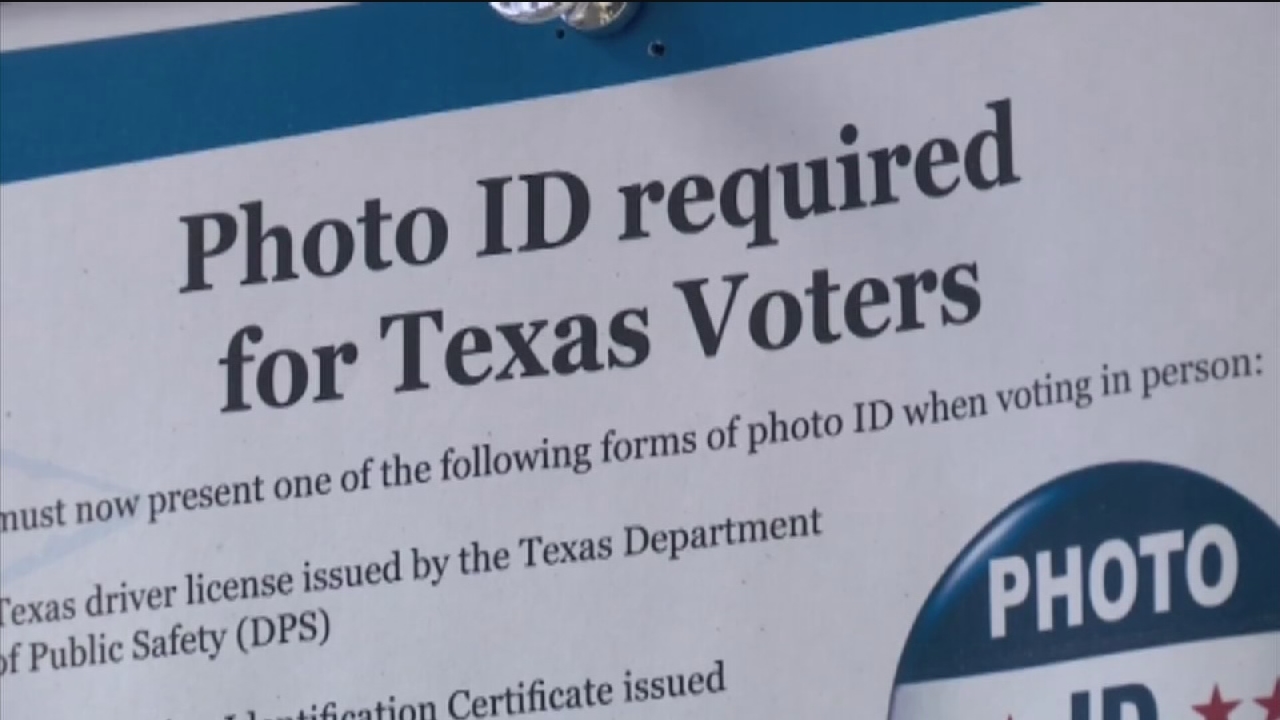Appeals court reinstates Texas voter ID law


AUSTIN, TX -- A federal appeals court on Tuesday reinstated Texas' tough voter ID law for the November election, which the U.S. Justice Department had condemned as the state's latest means of suppressing minority voter turnout.
The ruling by the New Orleans-based 5th Circuit Court of Appeals temporarily blocks last week's ruling by U.S. District Judge Nelva Gonzales Ramos in Corpus Christi, who determined the law unconstitutional and similar to a poll tax designed to dissuade minorities from voting.
The 5th Circuit did not rule on the merits of the law; instead, it determined it's too late to change the rules for the upcoming election. Early voting starts Oct. 20.
The law remains under appeal. For now, the ruling is a key victory for Republican-backed photo ID measures that have swept across the U.S. in recent years. The Texas law, considered the toughest of its kind in the nation, requires that an estimated 13.6 million registered Texas voters will need one of seven kinds of photo identification to cast a ballot.
The Justice Department says more than 600,000 of those voters, mostly blacks and Hispanics, lack eligible ID.
In her ruling last week, Gonzales Ramos, an appointee of President Barack Obama, called the law an "unconstitutional burden on the right to vote." Texas Attorney General Greg Abbott quickly sought an emergency ruling from the conservative-leaning appeals court before the upcoming election. Abbott is on the ballot as the Republican nominee for governor.
Nineteen states have laws requiring voters to show identification at the polls. Courts across the country have knocked down challenges - including at the U.S. Supreme Court - but the Texas case attracted unusual attention from U.S. Attorney General Eric Holder.
He brought the weight of his office into Texas after the Supreme Court last year struck down the heart of the Voting Rights Act, which had prohibited the state from enacting its voter ID law signed by Republican Gov. Rick Perry in 2011. Democrats and minority rights groups joined the Justice Department in the lawsuit.
The full Voting Rights Act had blocked Texas and eight other states with histories of discrimination from changing election laws without permission from the Justice Department or a federal court. Holder vowed to wring whatever protections he could from the new and weakened version, and made Texas a first target.
Abbott, who is favored to win the race against Democrat Wendy Davis to replace Rick Perry as governor, said minorities and whites alike supported the law in public opinion polls. Abbott's office also pointed to other states, such as Georgia and Indiana, where similar measures have been upheld.
But opponents slammed Texas' law as far more discriminatory. College students IDs aren't acceptable, but concealed handgun licenses are. Free voting IDs offered by the state require a birth certificate that costs as little as $3, but the Justice Department argued that traveling to get those documents imposes a burden on poor minorities.
As a result, opponents say, Texas has issued fewer than 300 free voter IDs since the law took effect. Georgia, meanwhile, has issued 2,200 voter IDs under a program with more robust outreach.






